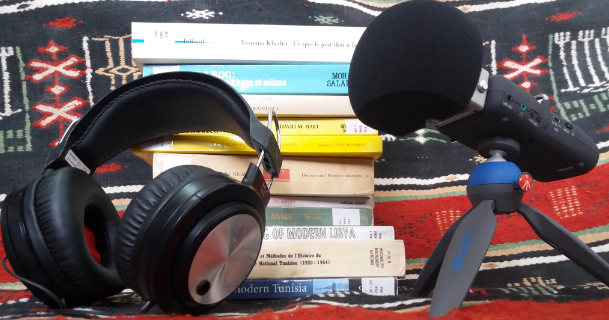
58.8K
Downloads
209
Episodes
Maghrib in Past & Present | Podcasts is a forum in which artists, writers, and scholars from North Africa, the United States, and beyond can present their ongoing and innovative research on and in the Maghrib. The podcasts are based on lectures, live performances, book talks, and interviews across the region. Aiming to project the scientific and cultural dynamism of research in and on North Africa into the classroom, we too hope to reach a wider audience across the globe.
Episodes
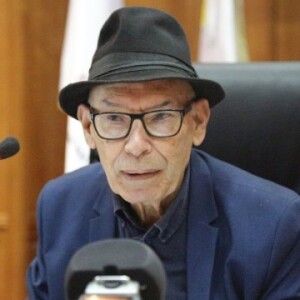
7 days ago
7 days ago
Episode 209: Entretien avec le Politologue Rachid Tlemçani
Le projet « Archives d’histoire orale de la production intellectuelle maghrébine » vise à documenter les trajectoires de vie, les formations intellectuelles et les luttes politiques de plusieurs générations de femmes et d'hommes nord-africains qui ont contribué à la création de la culture écrite et parlée dans cette partie du monde. Les entretiens sont réalisés avec des économistes, planificateurs, nutritionnistes, architectes, sociologues ruraux et d'autres chercheurs algériens, marocains et tunisiens. Il s'agit de la toute première initiative au Maghreb visant à créer des archives écrites, orales et filmées du travail intellectuel de générations qui se sont battues pour construire leurs sociétés. Elle innove en rassemblant ces voix et en les portant à la connaissance d'un large public afin de mieux faire connaître les premiers aux seconds et de démocratiser l'accès au savoir dans notre région.
Dans ce podcast, enregistré en février 2023, Habib Ayeb, Professeur émérite de géographie à l’Université de Paris 8, s'entretient avec Rachid Tlemçani, Politologue, Professeur en relations internationales et sécurité régionale depuis 1984 à l’Institut des Sciences Politiques et des Relations Internationales, à l’Université d’Alger.
Équipe :
Habib Ayeb, Géographe
Max Ajl, Sociologue
Ernest Riva
Image : Leila Saadna
Post-production :Benoît Kalka
Découvrez la vidéo et l’interview en pdf
Montage : Hayet Yebbous Bensaid, Bibliothécaire / Chargée de la diffusion des activités scientifiques (CEMA).

Thursday Jun 26, 2025
Entretien avec le Sociologue Khalil Zamiti
Thursday Jun 26, 2025
Thursday Jun 26, 2025
Episode 208: Entretien avec le Sociologue Khalil Zamiti
Le projet « Archives d’histoire orale de la production intellectuelle maghrébine » vise à documenter les trajectoires de vie, les formations intellectuelles et les luttes politiques de plusieurs générations de femmes et d'hommes nord-africains qui ont contribué à la création de la culture écrite et parlée dans cette partie du monde. Les entretiens sont réalisés avec des économistes, planificateurs, nutritionnistes, architectes, sociologues ruraux et d'autres chercheurs algériens, marocains et tunisiens. Il s'agit de la toute première initiative au Maghreb visant à créer des archives écrites, orales et filmées du travail intellectuel de générations qui se sont battues pour construire leurs sociétés. Elle innove en rassemblant ces voix et en les portant à la connaissance d'un large public afin de mieux faire connaître les premiers aux seconds et de démocratiser l'accès au savoir dans notre région.
Dans ce podcast, enregistré en Tunisie en juin 2023, Habib Ayeb, professeur émérite de géographie à l’Université de Paris 8, s'entretient avec le Sociologue tunisien Khalil Zamiti, Professeur de sociologie au Centre d'Études et de Recherches Économiques et Sociales (CERES) à Tunis.
Équipe :
Habib Ayeb, Géographe
Max Ajl, Sociologue
Ernest Riva
Image : Ernest Riva
Post-production :Benoît Kalka
Découvrez la vidéo et l’interview en pdf
Nous remercions infiniment Mohammed Boukhoudmi d'avoir interprété un morceau musical de « Elli Mektoub Mektoub » pour les besoins de ce podcast.
Montage : Lena Krause, Boursière Résidente au Centre d’Études Maghrébines à Tunis (CEMAT).
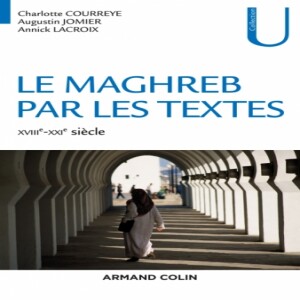
Thursday Jun 19, 2025
Le Maghreb par les textes, XVIIIe – XXIe siècle.
Thursday Jun 19, 2025
Thursday Jun 19, 2025
Episode 207: Le Maghreb par les textes, XVIIIe – XXIe siècl
Dans ce podcast, les Historiennes Charlotte Courreye et Annik Lacroix présentent l’ouvrage qu’elles ont coécrit avec Augustin Jomier, intitulé Le Maghreb par les textes, XVIIIe – XXIe siècle.
Malgré ses liens étroits avec la France, Le Maghreb (Algérie, Libye, Maroc et Tunisie) est généralement méconnu et son passé souvent réduit aux colonisations européennes. Afin de mieux comprendre le devenir et les cultures de cette région du monde, cet ouvrage on retrace l'histoire, du XVIIIe siècle à nos jours. Un corpus original d'une centaine de documents -témoignages, discours politiques, tracts, rapport d’ONG ou encore poèmes et films - éclair les grands événements politiques, ainsi que les dynamiques sociales, économiques, et culturelles.
Le lecteur saisit ces sociétés de façon vivante, découvrant la parole des populations locales et de toutes celles et ceux que l'on entend peu d'ordinaire. Précédé d'une introduction qui en présente le contexte de rédaction, chacun de ces textes s'adresse aussi bien à des étudiants et des enseignants du secondaire et du supérieur, qu’à un public curieux de découvrir davantage le Maghreb. (Texte extrait de la 4ème de couverture de l’ouvrage)
Charlotte Courreye est chercheuse postdoctorale à l'École normale supérieure, Université Jean Moulin Lyon 3. Elle a enseigné l'histoire et l'arabe à l’INALCO.
Annik Lacroix est Maîtresse de conférences en Histoire contemporaine à l'Université Paris-Nanterre et a enseigné l'histoire du Maghreb à l’INALCO.
Augustin Jomier est Maître de conférences en Histoire moderne et contemporaine du Maghreb à l’INALCO.
Cet épisode a été enregistré le 21 avril 2024 au Centre d'Études Maghrébines en Algérie (CEMA).
Dr. Belkacem Benzenine, Politologue et Directeur de recherche au CRASC, a modéré le débat de cette rencontre
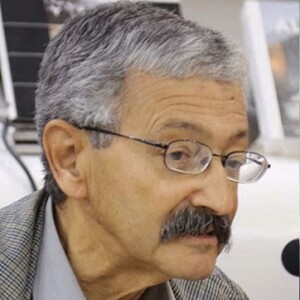
Thursday Jun 12, 2025
Entretien avec l’Historien et Archiviste Fouad Soufi
Thursday Jun 12, 2025
Thursday Jun 12, 2025
Episode 206: Entretien avec l’historien et archiviste Fouad Soufi
Le projet « Archives d’histoire orale de la production intellectuelle maghrébine » vise à documenter les trajectoires de vie, les formations intellectuelles et les luttes politiques de plusieurs générations de femmes et d'hommes nord-africains qui ont contribué à la création de la culture écrite et parlée dans cette partie du monde. Les entretiens sont réalisés avec des économistes, planificateurs, nutritionnistes, architectes, sociologues ruraux et d'autres chercheurs algériens, marocains et tunisiens. Il s'agit de la toute première initiative au Maghreb visant à créer des archives écrites, orales et filmées du travail intellectuel de générations qui se sont battues pour construire leurs sociétés. Elle innove en rassemblant ces voix et en les portant à la connaissance d'un large public afin de mieux faire connaître les premiers aux seconds et de démocratiser l'accès au savoir dans notre région.
Dans ce podcast, enregistré en février 2022, Habib Ayeb, Professeur émérite de géographie à l’Université de Paris 8, s'entretient avec Fouad Soufi, Historien et Archiviste, ancien Sous-Directeur des Archives Nationales d’Algérie et chercheur associé au Centre de Recherche en Anthropologie Sociale et Culturelle (CRASC), Oran.
Équipe :
Habib Ayeb, Géographe
Max Ajl, Sociologue
Ernest Riva
Image : Leila Saadna
Post-production :Benoît Kalka
Découvrez la vidéo et l’interview en pdf
Montage : Hayet Yebbous Bensaid, Bibliothécaire / Chargée de la diffusion des activités scientifiques (CEMA).
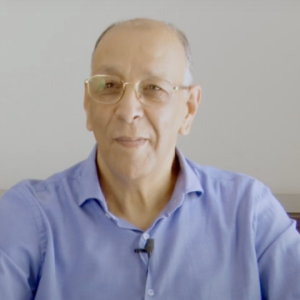
Thursday Jun 05, 2025
Entretien avec le sociologue Mounir Saidani
Thursday Jun 05, 2025
Thursday Jun 05, 2025
Episode 205: Entretien avec le sociologue Mounir Saidani
Le projet « Archives d’histoire orale de la production intellectuelle maghrébine » vise à documenter les trajectoires de vie, les formations intellectuelles et les luttes politiques de plusieurs générations de femmes et d'hommes nord-africains qui ont contribué à la création de la culture écrite et parlée dans cette partie du monde. Les entretiens sont réalisés avec des économistes, planificateurs, nutritionnistes, architectes, sociologues ruraux et d'autres chercheurs algériens, marocains et tunisiens. Il s'agit de la toute première initiative au Maghreb visant à créer des archives écrites, orales et filmées du travail intellectuel de générations qui se sont battues pour construire leurs sociétés. Elle innove en rassemblant ces voix et en les portant à la connaissance d'un large public afin de mieux faire connaître les premiers aux seconds et de démocratiser l'accès au savoir dans notre région.
Dans ce podcast, enregistré en Tunisie en juin 2023, Habib Ayeb, professeur émérite de géographie à l’Université de Paris 8, s'entretient avec le sociologue tunisien Mounir Saidani, Professeur de l'Enseignement Supérieur (Sociologie) à l’Institut Supérieure des Sciences Humaines, Université Tunis El Manar, et chercheur au Centre d'études et de recherches économiques et sociales (CERES).
Équipe :
Habib Ayeb, Géographe
Max Ajl, Sociologue
Ernest Riva
Image : Ernest Riva
Post-production :Benoît Kalka
Veuillez trouver l’interview en PDF et la vidéo sur ce lien.
Nous remercions infiniment Mohammed Boukhoudmi d'avoir interprété un morceau musical de « Elli Mektoub Mektoub » pour les besoins de ce podcast.
Montage : Lena Krause, Boursière Résidente au Centre d’Études Maghrébines à Tunis (CEMAT).
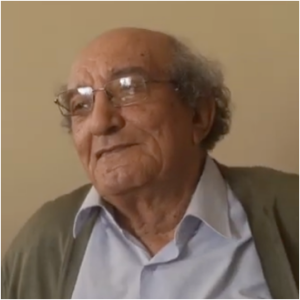
Thursday May 29, 2025
Entretien avec L’économiste Slimane Bedrani
Thursday May 29, 2025
Thursday May 29, 2025
Episode 204: Entretien avec L’économiste Slimane Bedrani
Le projet « Archives d’histoire orale de la production intellectuelle maghrébine » vise à documenter les trajectoires de vie, les formations intellectuelles et les luttes politiques de plusieurs générations de femmes et d'hommes nord-africains qui ont contribué à la création de la culture écrite et parlée dans cette partie du monde. Les entretiens sont réalisés avec des économistes, planificateurs, nutritionnistes, architectes, sociologues ruraux et d'autres chercheurs algériens, marocains et tunisiens. Il s'agit de la toute première initiative au Maghreb visant à créer des archives écrites, orales et filmées du travail intellectuel de générations qui se sont battues pour construire leurs sociétés. Elle innove en rassemblant ces voix et en les portant à la connaissance d'un large public afin de mieux faire connaître les premiers aux seconds et de démocratiser l'accès au savoir dans notre région.
Dans ce podcast, enregistré en février 2023, Habib Ayeb, professeur émérite de géographie à l’Université de Paris 8, s'entretient avec Slimane Bedrani, Professeur d’économie à l’École Nationale Supérieure d’Agronomie (ENSA). Ancien Directeur de recherche au Centre de recherche en économie appliquée pour le développement (CREAD) et Rédacteur en chef des Cahiers du CREAD.
Équipe :
Habib Ayeb, Géographe
Max Ajl, Sociologue
Ernest Riva
Image : Leila Saadna
Post-production :Benoît Kalka
Découvrez la vidéo et l’interview en pdf
Nous remercions Dr. Tamara Turner, Ethnomusicologue et chercheur au Max Planck Institute for Human Development, Centre for History of Emotions, pour son interprétation de Sidna Boulal du répertoire Hausa du Diwan (Hausa Sug).

Friday May 16, 2025
Friday May 16, 2025
Episode 203: En hommage à Hugh Roberts (Décédé en mai 2025): Élections des assemblées populaires et la négociation entre l’État et la société en Grande Kabylie pendant les premières années de l'indépendance, 1967-1978.
Dans ce podcast, feu Hugh Roberts, Professeur émérite d’Histoire à l’Université de Tufts (États-Unis) et directeur de North Africa Project, International Crisis Group, a exposé son travail de recherche, dédié aux élections des assemblées populaires et la négociation entre l’état et la société en Grande Kabylie pendant les premières années de l'indépendance, 1967-1978.
Professeur d’histoire de l’Afrique du Nord et du Moyen-Orient, Hugh Roberts était un éminent spécialiste de l’Algérie, ses travaux, à la croisée des sciences politiques et de l’anthropologie, se distinguent par leur rigueur et leur profondeur, et constituent aujourd’hui des références incontournables pour comprendre l’histoire et les dynamiques politiques de l’Algérie. Ses longs séjours en Algérie - et plus particulièrement à Bouira où il a enseigné l’anglais dans les années 1970 - ont joué un rôle déterminant dans son parcours académique. Sa rencontre avec l’Algérie a profondément nourri sa réflexion et façonné son regard sur le monde.
Cette conférence a été co-organisée par leCentre d'Études Maghrébines en Algérie (CEMA) et le Centre de Recherche en Anthropologie Sociale et Culturelle (CRASC). Elle a eu lieu le 27 avril 2011 au CEMA.
Dr. Saddek Benkada, Historien, Maître de recherche au CRASC a modéré le débat.
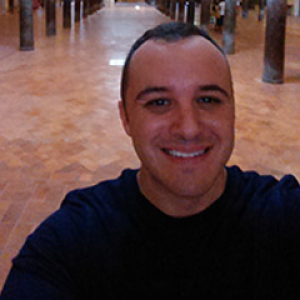
Thursday Apr 17, 2025
Moorish Refugees in the Early Modern Mediterranean
Thursday Apr 17, 2025
Thursday Apr 17, 2025
Episode 202: Moorish Refugees in the Early Modern Mediterranean
In this podcast, Andrew Russo, Ph.D. candidate in History at the University of Rochester, discusses his current project on the Morisco community in early modern Morocco, Tunisia, and Sicily. Russo outlines current trends in the historiography of the Moriscos, including a focus on local sources and records that illuminate the broad range of identities arriving in North Africa. Presenting several of these sources, Russo compares Morisco communities arriving in Morocco and Tunisia as well as how interactions with local religious and political authorities affected their experiences. Russo describes how certain writers of the time shaped narratives of Morisco identity and concludes by highlighting sources in Tunisia, including many in Spanish.
Andrew Russo is a scholar of mobility, migration, and diaspora. He graduated from the State University of New York in Brockport with a MA degree in Global History, and now lives in Rabat, Morocco.
This interview was conducted by Luke Scalone, CEMAT Chargé de Programmes, and was recorded via on the 1st of November, 2023.
To see related slides, visit our website www.themaghribpodcast.com
We thank Mr. Souheib Zallazi, (student at CFT, Tunisia) and Mr. Malek Saadani (student at ULT, Tunisia), for their interpretation of el Ardh Ardhi of Sabri Mesbah, performed for the introduction and conclusion of this podcast. Souheib on melodica and Malek on guitar.
Production and editing: Lena Krause, AIMS Resident Fellow at the Centre d’Études Maghrébines à Tunis (CEMAT).
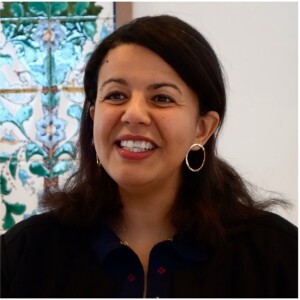
Thursday Mar 20, 2025
Entretien avec l’architecte Sihem Lamine
Thursday Mar 20, 2025
Thursday Mar 20, 2025
Épisode 201: Entretien avec l’architecte Sihem Lamine
Le projet « Archives d’histoire orale de la production intellectuelle maghrébine » vise à documenter les trajectoires de vie, les formations intellectuelles et les luttes politiques de plusieurs générations de femmes et d'hommes nord-africains qui ont contribué à la création de la culture écrite et parlée dans cette partie du monde. Les entretiens sont réalisés avec des économistes, planificateurs, nutritionnistes, architectes, sociologues ruraux et d'autres chercheurs algériens, marocains et tunisiens. Il s'agit de la toute première initiative au Maghreb visant à créer des archives écrites, orales et filmées du travail intellectuel de générations qui se sont battues pour construire leurs sociétés. Elle innove en rassemblant ces voix et en les portant à la connaissance d'un large public afin de mieux faire connaître les premiers aux seconds et de démocratiser l'accès au savoir dans notre région.
Dans ce podcast, enregistré en Tunisie en mars 2022, Habib Ayeb, professeur émérite de géographie à l’Université de Paris 8, s'entretient avec l’architecte tunisienne Sihem Lamine, chercheure en histoire de l'architecture islamique et Directrice du Centre des Études sur le Moyen-Orient de l'Université de Harvard (CMES) à Tunis.
Équipe:
Habib Ayeb, Géographe
Max Ajl, Sociologue
Ernest Riva
Image: Ernest Riva
Post-production : Benoît Kalka
Découvrez sur ces liens la vidéo et l’interview en pdf.
Nous remercions notre ami Mohammed Boukhoudmi pour son interprétation de l'extrait de nouba "Dziriya" par Dr. Noureddine Saoudi pour l'introduction et la conclusion de ce podcast.
Montage : Lena Krause, Boursière Résidente au Centre d’Études Maghrébines à Tunis (CEMAT).
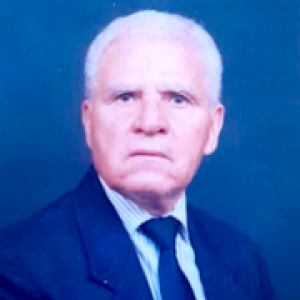
Thursday Mar 13, 2025
Rencontre avec Ramdane Asselah autour de son ouvrage: Mémoires d’un militant de l’OS
Thursday Mar 13, 2025
Thursday Mar 13, 2025
Épisode 200: Rencontre avec Ramdane Asselah autour de son ouvrage: Mémoires d’un militant de l’OS
À la fois émouvant et authentique, ce livre retrace le parcours, le combat et la résistance d’un homme durant la période la plus difficile du nationalisme algérien.
À travers ce récit, Ramdane Asselah, restitue un pan entier de notre histoire «la lutte, nous-dit il, mène toujours à la liberté, elle est l’unique recours pour survivre à toute forme de brutalité».
En tant qu’ancien responsable de l’OS, l’auteur nous livre des détails inédits sur la structure, le fonctionnement et surtout le démantèlement de cette organisation paramilitaire en 1950, par les forces coloniales.
Né à Ighil Imoula, haut lieu d’histoire et de résistance, lieu de proclamation du 1er Novembre 1954, Ramdane Asselah a dirigé une cellule du PPA à Boghni.
De 1947 à 1950, il assure des responsabilités au sein de l’organisation spéciale l’OS, section radio-transmissions. Il a fait carrière aux PTT tout en poursuivant des études supérieures, il a pris sa retraite en 1988 et s’est mis à écrire.
(Texte extrait de la 4ème de couverture de l’ouvrage).
Pr. Hassan Remaoun, sociologue à l’Université d’Oran et chercheur au CRASC, a modéré la rencontre.
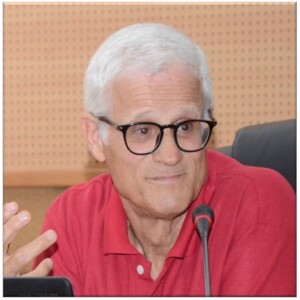
Thursday Mar 06, 2025
Entretien avec L’économiste Najib Akesbi
Thursday Mar 06, 2025
Thursday Mar 06, 2025
Episode 199: Entretien avec L’économiste Najib Akesbi
Le projet « Archives d’histoire orale de la production intellectuelle maghrébine » vise à documenter les trajectoires de vie, les formations intellectuelles et les luttes politiques de plusieurs générations de femmes et d'hommes nord-africains qui ont contribué à la création de la culture écrite et parlée dans cette partie du monde. Les entretiens sont réalisés avec des économistes, planificateurs, nutritionnistes, architectes, sociologues ruraux et d'autres chercheurs algériens, marocains et tunisiens. Il s'agit de la toute première initiative au Maghreb visant à créer des archives écrites, orales et filmées du travail intellectuel de générations qui se sont battues pour construire leurs sociétés. Elle innove en rassemblant ces voix et en les portant à la connaissance d'un large public afin de mieux faire connaître les premiers aux seconds et de démocratiser l'accès au savoir dans notre région.
Dans ce podcast, Habib Ayeb, professeur émérite de géographie à l’Université de Paris 8, s'entretient avec l’économiste Najib Akesbi, professeur à l'Institut agronomique et vétérinaire Hassan II (IAV) à Rabat au Maroc.
Équipe :
Habib Ayeb, Géographe
Max Ajl, Sociologue
Ernest Riva
Image : Ernest Riva
Post-production :Benoît Kalka
Découvrez la vidéo et l’interview en pdf
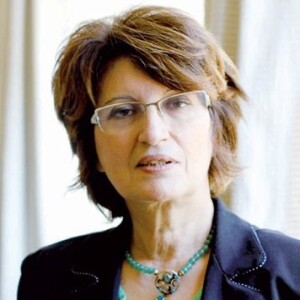
Thursday Feb 20, 2025
Entretient avec la sociologue et anthropologue Fatma Oussedik
Thursday Feb 20, 2025
Thursday Feb 20, 2025
Episode 198: Entretient avec la sociologue et anthropologue Fatma Oussedik
Le projet « Archives d’histoire orale de la production intellectuelle maghrébine » vise à documenter les trajectoires de vie, les formations intellectuelles et les luttes politiques de plusieurs générations de femmes et d'hommes nord-africains qui ont contribué à la création de la culture écrite et parlée dans cette partie du monde. Les entretiens sont réalisés avec des économistes, planificateurs, nutritionnistes, architectes, sociologues ruraux et d'autres chercheurs algériens, marocains et tunisiens. Il s'agit de la toute première initiative au Maghreb visant à créer des archives écrites, orales et filmées du travail intellectuel de générations qui se sont battues pour construire leurs sociétés. Elle innove en rassemblant ces voix et en les portant à la connaissance d'un large public afin de mieux faire connaître les premiers aux seconds et de démocratiser l'accès au savoir dans notre région.
Dans ce podcast, enregistré en février 2023, Habib Ayeb, professeur émérite de géographie à l’Université de Paris 8, s'entretient avec Pr. Fatma Oussedik, sociologue et anthropologue à l'université d'Alger et chercheuse au Centre de Recherche en Économie Appliquée pour le Développement (CREAD).
Equipe :
Habib Ayeb, Géographe
Max Ajl, Sociologue
Ernest Riva
Image : Leila Saadna
Post-production : Benoît Kalka
Veuillez trouver l’interview en pdf et la vidéo sur ce lien.

Thursday Feb 06, 2025
Scribal Networks and Diplomatic Knowledge Production across North Africa
Thursday Feb 06, 2025
Thursday Feb 06, 2025
Episode 197: Scribal Networks and Diplomatic Knowledge Production across North Africa
What did trans-Maghribi society look like on the eve of colonialism? Who travelled across these spaces and for what reasons? This interview is an early exploration into Dr. Kitlas’ second project, which proposes a more attentive engagement with the history of a dynamic and multifaceted eighteenth-century trans-maghrib society. Spanning Tunis to Tangier, this project examines the networks of traders, Sufis, consuls, translators, and court advisors that embedded themselves in Maghribi locales outside their home cities and, in doing so, took part in producing a distinct trans-maghrib socio-cultural sphere. Building on his first monograph that focuses on the layers of diplomatic practice in Morocco, this interview thinks through ways to expand these networks and the knowledge production attached to them across localities in the wider Maghrib. The project questions the historiographical focus on north-south movements, and in its place adds a new east-west perspective that transcends stubborn political divides and sheds light on the ways in which a dynamic cultural and intellectual sphere developed, spread, and was sustained across the Ottoman/Moroccan Maghrib.
Peter Kitlas is currently an Assistant Professor of History at the American University of Beirut. His research focuses on the intellectual and cultural history in eighteenth-century North Africa as told through Arabic and Ottoman-Turkish sources. Exploring the intersection of scribal practice and diplomatic knowledge production in Morocco, his first monograph rethinks the influence of Islamic thought on Mediterranean conceptualizations of diplomacy. Peter has served as a Peace Corps volunteer in Morocco and conducted research in North Africa, Spain, Croatia and Turkey through the support of fellowships from SSRC and Fulbright-Hays. His written work has been published in The Journal of Early Modern History, Mediterranean Studies Journal, The Journal of North African Studies, and The Encyclopedia of Islam Three.
This episode was recorded via Zoom on the 25th of October, 2023, at the Centre d’Études Maghrébines à Tunis (CEMAT) s with Luke Scalone, CEMAT Chargé de Programmes.
We thank our friend Ignacio Villalón for his guitar performance for the introduction and conclusion of this podcast.
Production and editing: Lena Krause, AIMS Resident Fellow at the Centre d’Etudes Maghrébines à Tunis.
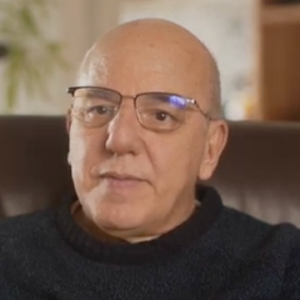
Thursday Jan 23, 2025
Entretien avec l’économiste Benabbou Senouci
Thursday Jan 23, 2025
Thursday Jan 23, 2025
Episode 196: Entretien avec l’économiste Benabbou Senouci
Le projet « Archives d’histoire orale de la production intellectuelle maghrébine » vise à documenter les trajectoires de vie, les formations intellectuelles et les luttes politiques de plusieurs générations de femmes et d'hommes nord-africains qui ont contribué à la création de la culture écrite et parlée dans cette partie du monde. Les entretiens sont réalisés avec des économistes, planificateurs, nutritionnistes, architectes, sociologues ruraux et d'autres chercheurs algériens, marocains et tunisiens. Il s'agit de la toute première initiative au Maghreb visant à créer des archives écrites, orales et filmées du travail intellectuel de générations qui se sont battues pour construire leurs sociétés. Elle innove en rassemblant ces voix et en les portant à la connaissance d'un large public afin de mieux faire connaître les premiers aux seconds et de démocratiser l'accès au savoir dans notre région.
Dans ce podcast, enregistré en février 2023, Habib Ayeb, professeur émérite de géographie à l’Université de Paris 8, s'entretient avec Pr. Benabbou Senouci, Économiste algérien. Professeur à l’École Supérieure d’Économie d'Oran. Coordinateur de l’équipe de recherche « Énergie, environnement et problématique du développement durable dans le Maghreb», membre du Laboratoire de recherche sur les économies euro-méditerranéennes «LAREEM » / Université d’Oran.
Equipe :
Habib Ayeb, Géographe
Max Ajl, Sociologue
Ernest Riva
Image : Leila Saadna
Post-production : Benoît Kalka
Veuillez trouver l’interview en pdf et la vidéo sur ce lien.
Montage: Hayet Yebbous Bensaid, Bibliothécaire / Chargée de la diffusion des activités scientifiques (CEMA).
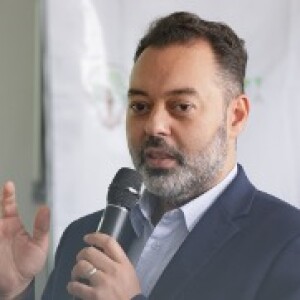
Thursday Jan 09, 2025
Current Issues in Africa Today
Thursday Jan 09, 2025
Thursday Jan 09, 2025
In this lecture, Dr. Fadhel Kaboub identifies the political and economic dynamics between the Global North and South since the wave of African independence in mid-20th century, by which the former has continued its colonial methods of resource extraction, steering the economies of the latter towards dependence on European and American technology and financing. By drawing on examples of large-scale agricultural and energy projects in Ethiopia, Namibia, and Uganda, Dr. Kaboub outlines the process by which African, Latin American, and Middle Eastern resources are captured by foreign energy companies. As Dr. Kaboub explains, poor countries are prevented from developing a domestic manufacturing base, rendering them dependent on companies from the industrialized economies of the Global North, which both produce the technology necessary for resource-harvesting and conduct post-extraction processing or refinement. As such, economies of the Global South are intentionally prevented from industrializing and are instead encouraged to invest heavily in primary resources for subsequent extraction by actors from the Global North. In the final part of his presentation, Dr. Kaboub dedicates his attention to the “carbon credit” scheme, by which large Western energy companies purchase the right to pollute, which they offset by preventing pollution (read: industrialization) in the Global South, in what amounts to painting an environmentally-friendly veneer over the same colonial process.
Fadhel Kaboub is an associate professor of economics at Denison University, and the president of the Global Institute for Sustainable Prosperity. He is the author of Global South Perspectives on substack. He is also a member of the Independent Expert Group on Just Transition and Development, an expert group member with the Global Solidarity Levies Task Force, a member of the Earth4All 21st Century Transformational Economics Commission, a Steering Committee member with the Fossil Fuel Non-Proliferation Treaty Initiative, and a member of the Independent Expert Group on Just Transition Finance. He has recently served as Under-Secretary-General for Financing for Development at the Organisation of Southern Cooperation in Addis Ababa, Ethiopia. Dr. Kaboub is an expert on designing public policies to enhance monetary and economic sovereignty in the Global South, build resilience, and promote equitable and sustainable prosperity. His recent work focuses on Just Transition, Climate Finance, and transforming the global trade, finance, and investment architecture. His most recent co-authored publication is Just Transition: A Climate, Energy, and Development Vision for Africa (May 2023). He has held a number of research affiliations with the Levy Economics Institute (NY), the John F. Kennedy School of Government at Harvard University (MA), the Economic Research Forum (Cairo), Power Shift Africa (Nairobi), African Forum on Climate Change, Energy and Development (Abuja), and the Center for Strategic Studies on the Maghreb (Tunis). You can follow him on LinkedIn, X/Twitter, Bluesky, YouTube, and TikTok @FadhelKaboub.
This podcast was recorded on the 9th of March 2024, at the Centre d’Études Maghrébines à Tunis (CEMAT) with Dr. Max Ajl, Senior Fellow at the Department of Conflict and Development Studies, Ghent University, researcher with the Observatoire de la Souveraineté Alimentaire et l’Environnement (OSAE), and research fellow at the Merian Center for Advanced Studies in the Maghreb (MECAM).
We thank Mr. Souheib Zallazi, (student at CFT, Tunisia) and Mr. Malek Saadani (student at ULT, Tunisia), for their interpretation of “el Ardh Ardhi” of Sabri Mesbah, performed for the introduction and conclusion of this podcast. Souheib on melodica and Malek on guitar.
Production and editing: Lena Krause, AIMS Resident Fellow at the Centre d’Études Maghrébines à Tunis (CEMAT).
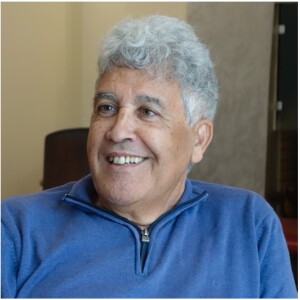
Thursday Dec 05, 2024
Entretien avec le politologue et sociologue Mohamed Tozy
Thursday Dec 05, 2024
Thursday Dec 05, 2024
Episode 194: Entretien avec le politologue et sociologue Mohamed Tozy
Le projet «Archives d’histoire orale de la production intellectuelle maghrébine» vise à documenter les trajectoires de vie, les formations intellectuelles et les luttes politiques de plusieurs générations de femmes et d'hommes nord-africains qui ont contribué à la création de la culture écrite et parlée dans cette partie du monde. Les entretiens sont réalisés avec des économistes, planificateurs, nutritionnistes, architectes, sociologues ruraux et d'autres chercheurs algériens, marocains et tunisiens. Il s'agit de la toute première initiative au Maghreb visant à créer des archives écrites, orales et filmées du travail intellectuel de générations qui se sont battues pour construire leurs sociétés. Elle innove en rassemblant ces voix et en les portant à la connaissance d'un large public afin de mieux faire connaître les premiers aux seconds et de démocratiser l'accès au savoir dans notre région.
Dans ce podcast, enregistré en février 2022, Habib Ayeb, professeur émérite de géographie à l’Université de Paris 8, s'entretient avec le professeur de sciences politiques et sociologie marocain Mohamed Tozy, Professeur à la Faculté de Droit de Casablanca, Co-directeur du MESOPOLHIS, une Unité Mixte de Recherche (UMR), à Aix-en-Provence.
Équipe:
Habib Ayeb, Géographe
Max Ajl, Sociologue
Ernest Riva
Image: Ernest Riva
Post-production: Ernest Riva
Découvrez la vidéo et l’interview en pdf
Nous remercions notre ami Ignacio Villalón, doctorant à l'Université de Crète/Institute for Mediterranean Studies, pour sa prestation à la guitare pour l'introduction et la conclusion de ce podcast.
Montage : Lena Krause, Boursière Résidente au Centre d’Études Maghrébines à Tunis (CEMAT).
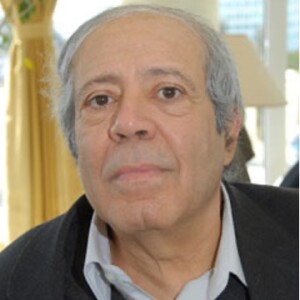
Thursday Nov 21, 2024
Entretien avec l'économiste Azzam Mahjoub (Décédé le 8 décembre 2022)
Thursday Nov 21, 2024
Thursday Nov 21, 2024
Episode 193: Entretien avec l'économiste Azzam Mahjoub (Décédé le 8 décembre 2022)
Le projet « Archives d’histoire orale de la production intellectuelle maghrébine » vise à documenter les trajectoires de vie, les formations intellectuelles et les luttes politiques de plusieurs générations de femmes et d'hommes nord-africains qui ont contribué à la création de la culture écrite et parlée dans cette partie du monde. Les entretiens sont réalisés avec des économistes, planificateurs, nutritionnistes, architectes, sociologues ruraux et d'autres chercheurs algériens, marocains et tunisiens. Il s'agit de la toute première initiative au Maghreb visant à créer des archives écrites, orales et filmées du travail intellectuel de générations qui se sont battues pour construire leurs sociétés. Elle innove en rassemblant ces voix et en les portant à la connaissance d'un large public afin de mieux faire connaître les premiers aux seconds et de démocratiser l'accès au savoir dans notre région.
Dans ce podcast, enregistré en Tunisie en avril 2021 , Habib Ayeb, professeur émérite de géographie à l’Université de Paris 8, s'entretient avec l’économiste tunisien Azzam Mahjoub, Ex-Professeur à la Faculté des sciences économiques et de gestion de Tunis et professeur émérite à l’Université de Tunis El Manar, qui nous a quitté le 8 décembre 2022.
Equipe :
Habib Ayeb, Géographe
Max Ajl, Sociologue
Ernest Riva
Image : Leila Saadna
Post-production : Benoît Kalka
Veuillez trouver l’interview en pdf et la vidéo sur ce lien.

Thursday Nov 14, 2024
Entretien avec l'économiste Omar Bessaoud
Thursday Nov 14, 2024
Thursday Nov 14, 2024
Episode 192: Entretien avec l'économiste Omar Bessaoud
Le projet « Archives d’histoire orale de la production intellectuelle maghrébine » vise à documenter les trajectoires de vie, les formations intellectuelles et les luttes politiques de plusieurs générations de femmes et d'hommes nord-africains qui ont contribué à la création de la culture écrite et parlée dans cette partie du monde. Les entretiens sont réalisés avec des économistes, planificateurs, nutritionnistes, architectes, sociologues ruraux et d'autres chercheurs algériens, marocains et tunisiens. Il s'agit de la toute première initiative au Maghreb visant à créer des archives écrites, orales et filmées du travail intellectuel de générations qui se sont battues pour construire leurs sociétés. Elle innove en rassemblant ces voix et en les portant à la connaissance d'un large public afin de mieux faire connaître les premiers aux seconds et de démocratiser l'accès au savoir dans notre région.
Dans ce podcast, enregistré en février 2023, Habib Ayeb, professeur émérite de géographie à l’Université de Paris 8, s'entretient avec Pr. Omar Bessaoud, Economiste algérien, professeur et chercheur à l’Institut Agronomique Méditerranéen de Montpellier (IAM), France.
Equipe :
Habib Ayeb, Géographe
Max Ajl, Sociologue
Ernest Riva
Image : Leila Saadna
Post-production : Benoît Kalka
Veuillez trouver l’interview en pdf et la vidéo sur ce lien.
Montage: Hayet Yebbous Bensaid, Bibliothécaire / Chargée de la diffusion des activités scientifiques (CEMA).
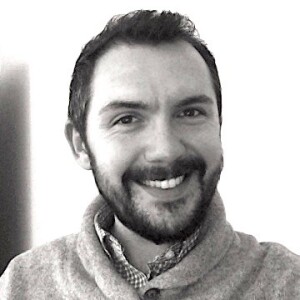
Thursday Nov 07, 2024
Digitizing Ibadi Libraries in Jerba and the Jebel Nafusa
Thursday Nov 07, 2024
Thursday Nov 07, 2024
Episode 191: Digitizing Ibadi Libraries in Jerba and the Jebel Nafusa
In this podcast, Paul Love talks about his work digitizing Ibadi libraries and collections in Djerba and the Jebel Nafusa (northwest Libya). Through these projects, Love evokes broad debates within critical cultural heritage studies. He discusses challenges in terms of preservation and conservation, such as preventing human misuse and regulating human activity in relation to historical manuscripts and other documentation, while sharing anecdotes of successful projects that illuminate the relationships that can be built through these efforts. Throughout the podcast, he raises questions about who gains from digitizing resources, the strengths and challenges of "democratizing" information, and larger directions in digital humanities.
Paul Love is Associate Professor of North African, Middle Eastern, and Islamic History at Al Akhawayn University in Ifrane (Morocco). He is also currently director of the Mohammed VI Library at the same institution. His research interests revolve around the history of Ibadi Muslim communities in Northern Africa, especially the social history of manuscripts and libraries. For the past several years, he has also worked in collaboration with colleagues in Libya, Tunisia, Algeria, and France to document and to protect manuscript collections across the region.
This podcast was recorded via Zoom on the 5th of September 2023, at the Centre d'Études Maghrébines à Tunis (CEMAT).
We thank Hisham Errish, a music composer and an Oud soloist, for his interpretation of “When the Desert Sings” in the introduction and conclusion of this podcast.
Production and editing: Lena Krause, AIMS Resident Fellow at the Centre d’Études Maghrébines à Tunis (CEMAT).
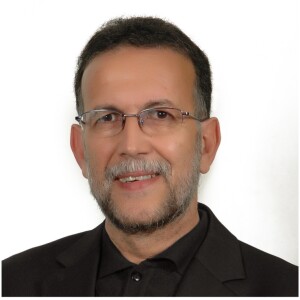
Thursday Oct 24, 2024
Entretien avec l'anthropologue et sociologue Hassan Rachik
Thursday Oct 24, 2024
Thursday Oct 24, 2024
Episode 190: Entretien avec l'anthropologue et sociologue Hassan Rachik
Le projet « Archives d’histoire orale de la production intellectuelle maghrébine » vise à documenter les trajectoires de vie, les formations intellectuelles et les luttes politiques de plusieurs générations de femmes et d'hommes nord-africains qui ont contribué à la création de la culture écrite et parlée dans cette partie du monde. Les entretiens sont réalisés avec des économistes, planificateurs, nutritionnistes, architectes, sociologues ruraux et d'autres chercheurs algériens, marocains et tunisiens. Il s'agit de la toute première initiative au Maghreb visant à créer des archives écrites, orales et filmées du travail intellectuel de générations qui se sont battues pour construire leurs sociétés. Elle innove en rassemblant ces voix et en les portant à la connaissance d'un large public afin de mieux faire connaître les premiers aux seconds et de démocratiser l'accès au savoir dans notre région.
Dans ce podcast, enregistré en février 2022, Habib Ayeb, professeur émérite de géographie à l’Université de Paris 8, s'entretient avec Pr. Hassan Rachik, Anthropologue et Sociologue marocain ex. Professeur à la retraite à l'Université Hassan II Casablanca. Maroc.
Équipe:
Habib Ayeb, Géographe
Max Ajl, Sociologue
Ernest Riva
Image: Ernest Riva
Post-production: Ernest Riva
Découvrez la vidéo et l’interview en pdf.
Nous remercions Dr. Tamara Turner, Ethnomusicologue et chercheur au Max Planck Institute for Human Development, Centre for History of Emotions, pour son interprétation de Sidna Boulal du répertoire Hausa du Diwan (Hausa Sug)
Montage: Hayet Yebbous Bensaid, Bibliothécaire / Chargée de la diffusion des activités scientifiques (CEMA).
